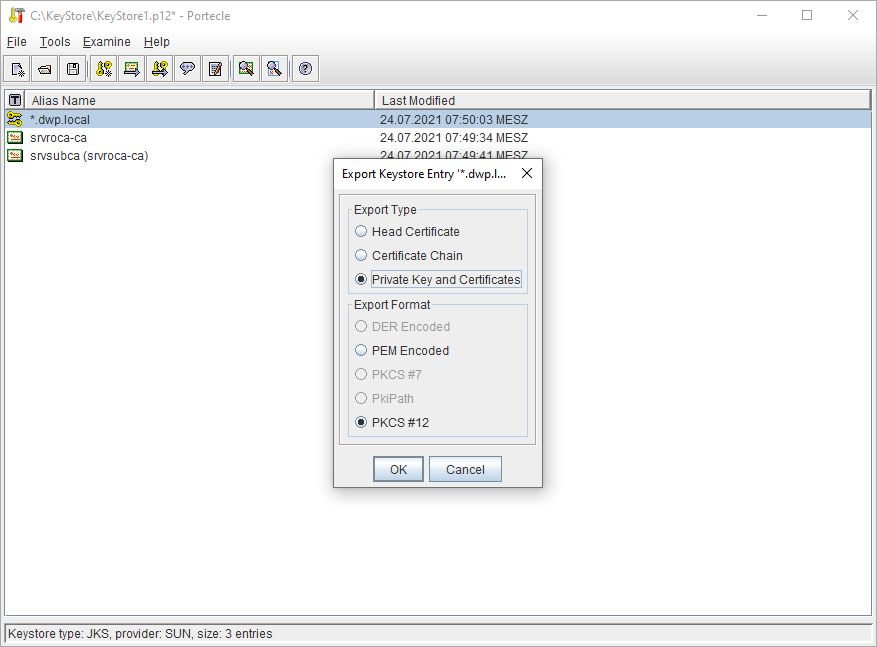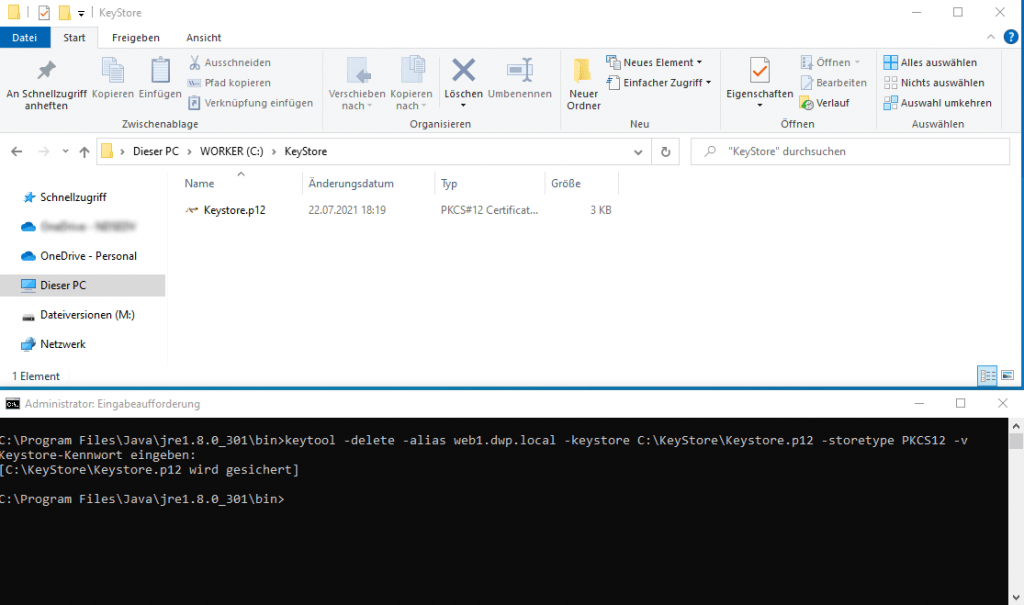
- #Keystore explorer online install
- #Keystore explorer online upgrade
- #Keystore explorer online password
#Keystore explorer online install
Using the open source tool called KeyStore Explorer to convert from JKS to BCFKS format.ĭownload and install KeyStore Explorer on the eDiscovery primary server following the defaults.
#Keystore explorer online password
If you have used another password, please replace both password values with the new password. Note: The above command assumes the current cacerts password is changeit. Keytool -importkeystore -srckeystore cacerts -srcstoretype JKS -srcstorepass changeit -destkeystore cacerts.bcfks -deststorepass changeit -deststoretype BCFKS -providerclass .provider.CryptoComplyFipsProvider Run the following command to convert the cacerts from JKS to BCFKS format:.Open an administrative command prompt in the folder containing the cacerts file for the current version of Java.įor example: C:\jdk-8u251-windows-圆4\jre\lib\security folder in version 10.0.Converting the Java Certificate Authority keystore, cacerts: When convenient, run Option #7 in the Clearwell Utility on the server desktop to deploy the converted certificate.ī.Upon completion of the conversion, rename the server.keystore to then rename the converted keystore from to server.keystore.If you have used another password, please replace both password values with the new password.Īlso, if copying/pasting this command, ensure that no extra characters are randomly inserted into the command. Note: The above command assumes the current keystore password is 123456. Keytool -importkeystore -srckeystore server.keystore -srcstoretype JKS -srcstorepass 123456 -destkeystore -deststorepass 123456 -deststoretype BCFKS -providerclass .provider.CryptoComplyFipsProvider Run the following command to convert the server.keystore from JKS to BCFKS format:.



On occasion, it may be necessary to manually convert a JKS formatted keystore to BCFKS format, such as when implementing secure LDAP (LDAPs).
#Keystore explorer online upgrade
The new format used in version 10.0 and above is Bouncy Castle Foundation KeyStore format (BCFKS) and is required for both the server.keystore and cacerts files.ĭuring an upgrade or fresh installation, this conversion takes place automatically.

Prior to version 10.0 the Tomcat keystore, server.keystore, and the Java Certificate Autority keystore, cacerts, used by eDiscovery were in Java KeyStore format (JKS). A keystore is a place that we can hold onto these keys.In eDiscovery version 10.0, a new keystore format was introduced to improve security and compatibility with modern encryption methods. Secret keys can perform these functions as well. Private keys can sign or decrypt data, and public keys can verify or encrypt data. Of course, we can use these keys to service other needs as well. If our keystore format is different than the default, we could use to customize it. There's no default keystore, so if we want to use an encrypted channel, we'll have to set and. Similarly, if the client also needs to authenticate itself, a situation called mutual authentication, then the client also has a keystore and also presents its public key and certificate. During an SSL handshake, the server looks up the private key from the keystore, and presents its corresponding public key and certificate to the client. Usually, we'll use a keystore when we're a server and want to use HTTPS. The main difference between JKS and PKCS12 is that JKS is a Java-specific format, while PKCS12 is a standardized way of storing keys and certificates In case we need, we can also perform these operations programmatically. Generally speaking, keystores hold keys that our application owns, which we can use to prove the integrity of a message and the authenticity of the sender, say by signing payloads.


 0 kommentar(er)
0 kommentar(er)
